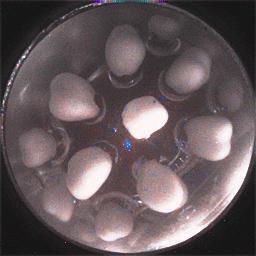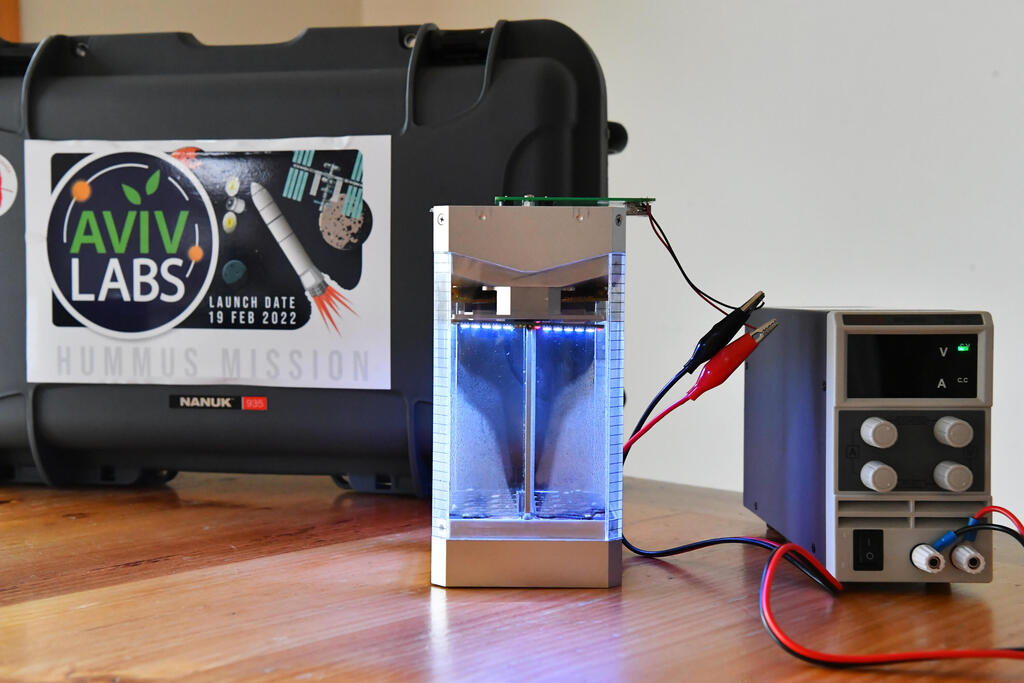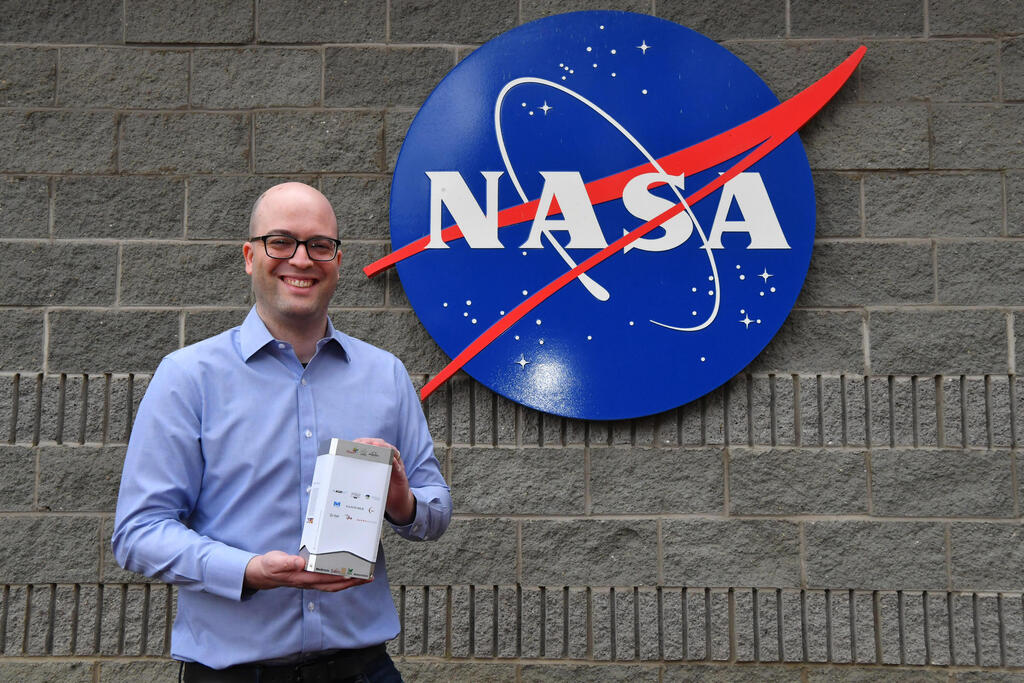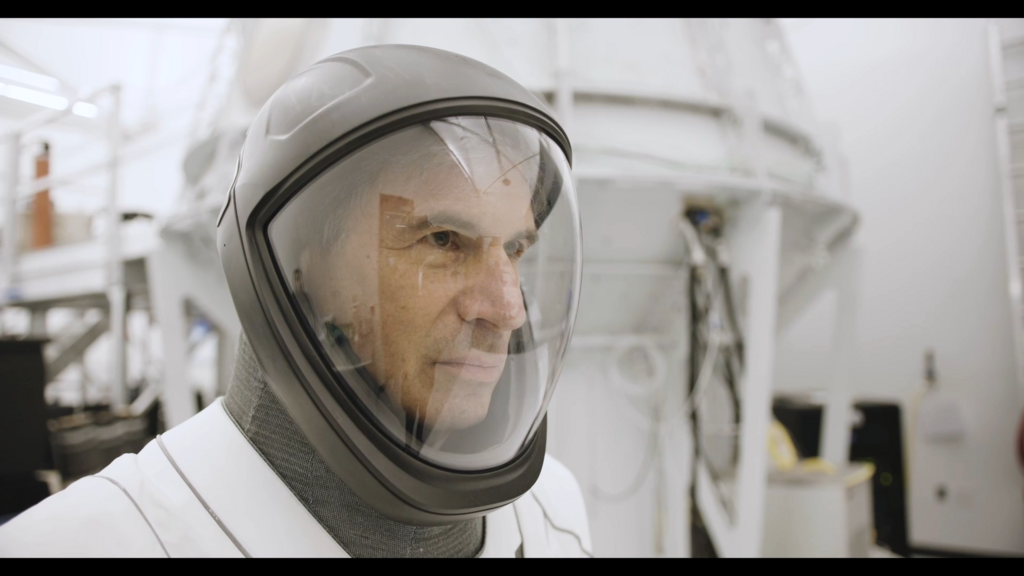Getting your Trinity Audio player ready...
Four days after embarking on a journey to the International Space Station (ISS), Israeli food-tech firm Aviv Labs announced Wednesday evening that almost all the chickpeas it sent into space have sprouted as part of its mission to turn horticulture under microgravity conditions feasible.
By sending the nutritious legume up into space, the Israeli company is trying to overcome one of the biggest obstacles in life in outer space — growing food.
4 View gallery


Chickpeas sprouting in outer space en route to the International Space Station
(Photo: Medtronic)
"We're happy to report that most of the chickpeas have sprouted in the ISS. The systems are functioning as expected and survived the launch," said Yonatan Winetraub, Aviv Labs founder and CEO and leader of the experiment.
"We received images of the sprouting seeds and images that show the roots. We're witnessing the first-ever chickpeas to sprout in space."
The company added that the seeds' growth rate is faster than that of the control group in a concurring experiment on Earth.
Researchers struggled to hide their excitement and but noted they were unsure how the chickpeas will continue to grow under microgravity conditions.
4 View gallery


Parts of the mobile lab sent into space on board the Cygnus cargo mission
(Photo: Gettyimages)
"Meanwhile, the seeds are soused in a special gel... consisting of fertilizer that provides the chickpeas with nutrition," they said. "The scientists on Earth receive the images directly through a unique camera developed by Medtronic."
The experiment took off on Saturday after cargo spaceship Cygnus was sent into space from the NASA Wallops Space Flight Facility with 8,000 kgs (17,600 lbs) of cargo on board, including a special mobile lab that contains the chickpeas.
This is just one of the dozens of experiments that Israeli astronaut Eytan Stibbe was supposed to conduct on board the ISS through the Rakia project.
However, the experiment began without him since his take-off was put off to the end of March. He will arrive at the ISS on SpaceX's Dragon cargo mission.
Researchers say the success of the experiment could make subsistence on the moon and farther destinations in space possible.



